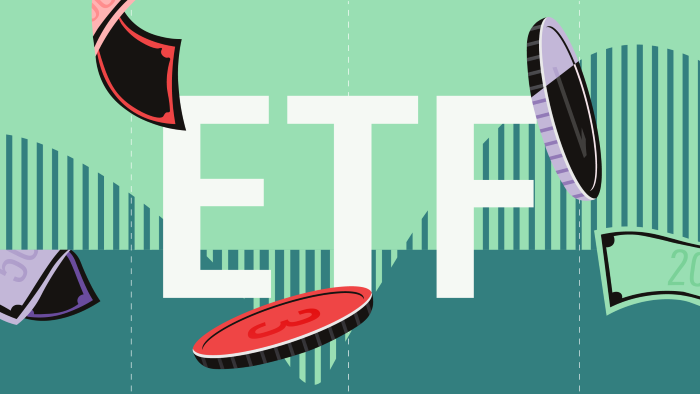
Joy Ride
'Tis the season for investment spectacles. While GameStop embarked on the most dramatic round trip in modern stock-market history, boomeranging from US$40 per share to US$480 and then back to US$40, the ARK family of funds made its own history. On Feb. 9 and then again on Feb. 11, ARK funds received more than US$1 billion of inflows.
(As I write these words, GameStop has rallied to US$120 over the past two days after languishing near US$40 for a full week. Go figure.)
If ARK's receipts weren't an all-time record--they were well above Vanguard's best run rate, but I don't have access to Vanguard's daily figures--they were without doubt the highest ever notched by a niche fund company. Unlike other fund-industry sales leaders, ARK is new to the scene (founded in 2014) and until recently was tiny. One year ago, the company's U.S. funds held only US$3 billion in assets.
Investing by Theme
ARK's funds are highly specialized; the right funds, one might say, for the right time. In the United States, the company operates seven exchange-traded funds, each of which pursues an investment theme. (In Canada, some of these funds are available under the Emerge ARK umbrella).
You can completely, utterly, and unreservedly judge these books by their covers. The funds' portfolios are as their names suggest, stuffed with companies that are high on promise and low on earnings. For example, the median price/sales ratio for ARKK's companies is 22, as opposed to 2.5 for the overall stock market. Only one third of those businesses are currently profitable.
In short, these funds will terrify those with a strong sense of investment history. Finance professors widely prefer cheap, unheralded companies to stocks that carry steep prices and similarly steep expectations. Practitioners tend to be swayed more by personal experience than do academics, but most veterans reach a similar conclusion: Emerging businesses usually disappoint.
Although ARK's investment strategy is familiar, the company's sales success is not. Its inflows raise the question: Is the mutual fund tail wagging the stock-market dog? That is, have ARK funds performed so well--ARKK is up 11% this year after gaining a breathtaking 152% in 2020--because when its funds put their new monies to work, they boost the prices of the stocks that they already hold?
Indexmania Running Wild?
Such queries are nothing new. They have long been asked of equity index funds, which have been called self-fulfilling prophecies. However, the math doesn't support that argument. Although equity index funds are enormous, their inflows are not strong enough to do anything more than nudge stock prices.
This occurs because of two reasons. One is that index funds have been a long, slow build. Yes, such funds control US$5 trillion, but that figure was attained after decades' worth of sales, plus market appreciation. In no calendar year have the net annual sales for U.S. equity index funds of all stripes, offered by all providers, including both mutual funds and ETFs, surpassed US$230 billion.
The other reason is that the U.S. equity market is enormous. When equity index funds notched their highest annual inflows, in 2016, the total capitalization of U.S. stocks was US$25 trillion. Thus, during their very best year for sales, equity index funds received cash that amounted to less than 1% of their investment universe. That amount was--and is--insufficient to have meaningful consequences.
Switching to a daily view doesn't change the narrative. Currently, about US$350 billion worth of U.S. equity shares are exchanged each day. Even if equity fund sales had remained at their previous level, they would account for just 0.3% of the market's overall activity. True, their impact would be greater than that number suggests, because about half of that daily US$350 billion comes from high-frequency traders shuffling their shares, but their effect would nonetheless be modest.
The ARK View
The numbers look quite different for ARK's funds, which not only are relatively concentrated, but which also own many smaller companies. Several times this month, ARKK has received more than US$300 million in a single day, to be placed in around 50 companies. Naturally, the impact of those trades is much greater than those made by the industry's major index funds.
For example, ARKK's sixth-largest holding as of Feb. 1, 2021, the genetic-testing company Invitae (NVTA), has average daily trading volume of US$420 million. To maintain its 3.8% position in Invitae after receiving US$300 million in additional assets, ARKK was required to place US$11.4 million in the stock. That amounted to 2.7% of Invitae's average trading volume.
That figure is slightly higher than the portfolio median of 2%, but not by much. As of Feb. 1, US$300 million in daily new sales would have caused ARKK to buy more than 10% of the average trading volume of four positions, and between 5% and 10% of another 10 positions. Such figures never occur with index funds--at least, not any mainstream fund that benchmarks a major index.
Whether ARK's cash flows have meaningfully boosted its portfolios' prices is unclear. Stocks, after all, do not submit to interviews. However, the possibility does exist that, at least at certain times, ARK's portfolios are bootstrapping themselves. They increase in price because of the assets that they have received. In turn, that performance encourages investors to send them additional monies, which leads to more price appreciation. And so forth.
Perhaps I have overstated this concern. Only professional traders can know how trade orders that equal 2% of daily volume will affect a stock's price--and even then, the impact depends upon other factors, such as how quickly the order must be filled, and the extent of ready sellers. I will say, this, though: Until ARK came along, I shrugged off claims that cash flows into funds influenced their returns. Now I pay attention.
Passionate about Investing in New Ideas?
Explore the latest Global Thematic Fund Landscape report here




















